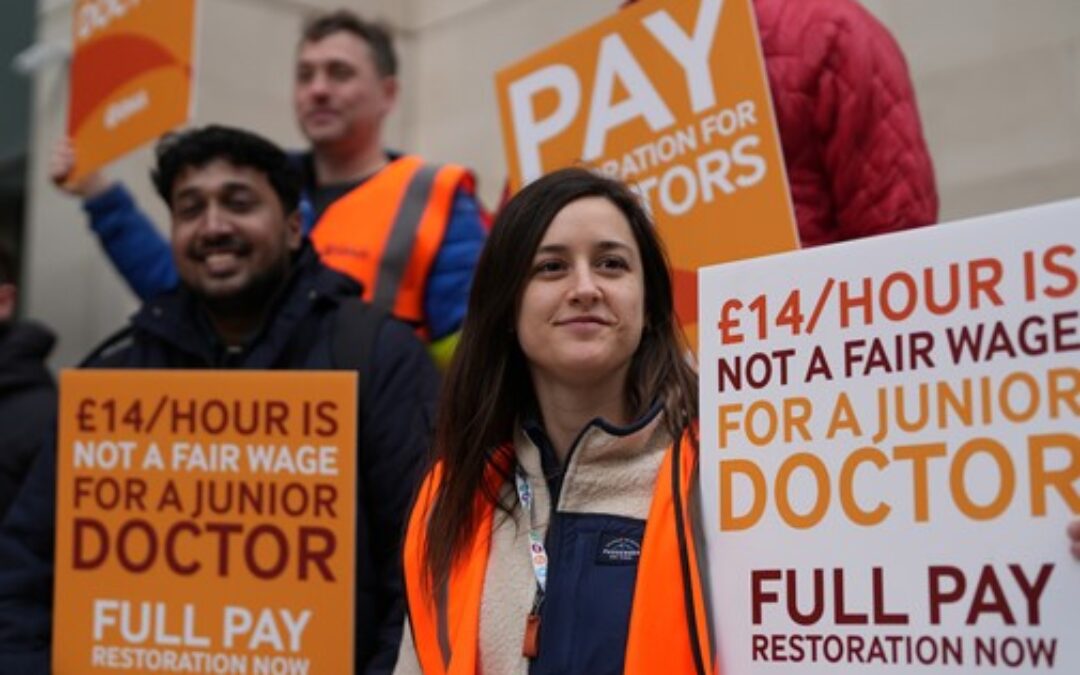The National Health Service (NHS) is one of the largest and most respected healthcare systems in the world as well as being one of the worlds biggest employers. It is the cornerstone of public health in the UK, providing comprehensive and accessible healthcare to all. However, in recent years, the NHS has faced numerous challenges often as a consequence of politics. Staffing shortages, increasing demand for services and reduction in capacity has resulted in frequent “crises” where the NHS is overwhelmed. One of the biggest challenges facing the NHS today is the need to restore full pay for healthcare workers.
The COVID-19 pandemic has had a profound impact on the NHS, putting significant strain on the health and wellbeing of doctors and other healthcare workers. The pandemic has also put a spotlight on the importance of having a well-supported, well-funded and well-resourced healthcare system. Despite the incredible efforts of doctors and other healthcare workers, they have faced many challenges, including long hours, increased workload, and exposure to the virus. In recognition of their hard work, many doctors have been awarded a one-time payment, but this has not been enough to fully restore their pay.
The need for full pay restoration for doctors is rooted in several key factors. Firstly, it is a matter of basic fairness. Doctors are highly trained professionals who play a critical role in saving lives and improving health outcomes. They deserve to be fairly compensated for their work, especially in light of the challenges they have faced during the pandemic. Since 2008 the consultant salary has effectively gone down by 30% in relation to inflation.
Secondly, full pay restoration is essential for the long-term sustainability of the NHS. If doctors are not fairly compensated for their work, it may become difficult to attract and retain the best talent, which could have a negative impact on the quality of care provided to patients. This is particularly important in light of the ongoing staffing shortages in the NHS, which have been exacerbated by the pandemic.
Finally, full pay restoration is critical for the financial health of doctors and their families. Many doctors have faced significant financial challenges as a result of the pandemic, including decreased hours and reduced pay. This has led to financial hardship for many, which has been compounded by the rising cost of living and unfair pension taxation. Full pay restoration would help to alleviate some of these financial pressures and ensure that doctors can focus on providing the best possible care to their patients.
In conclusion, the need for full pay restoration for U.K. doctors is clear and urgent. It is a matter of fairness, sustainability, and financial security. The government and the NHS must take action to ensure that doctors are fairly compensated for their work, especially in light of the challenges they have faced during the pandemic. By restoring full pay for doctors, we can help to ensure the long-term sustainability of the NHS and improve the health and wellbeing of all citizens.
With that I hope to support all colleagues undertaking industrial action in order to ensure the long-term survival of the NHS.

